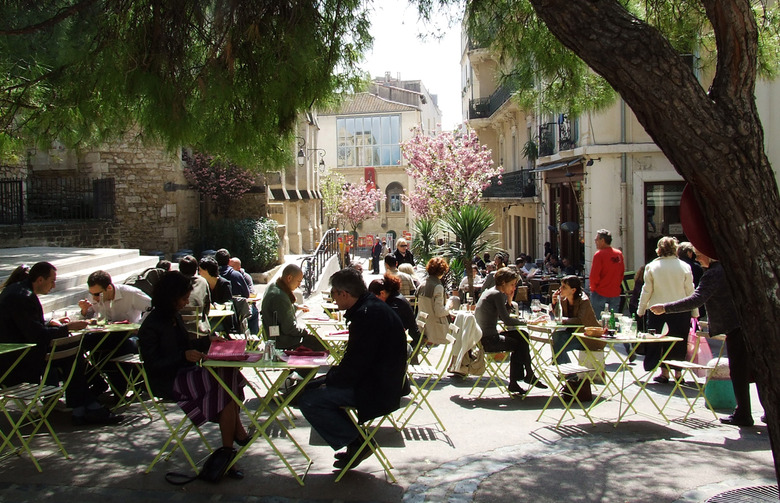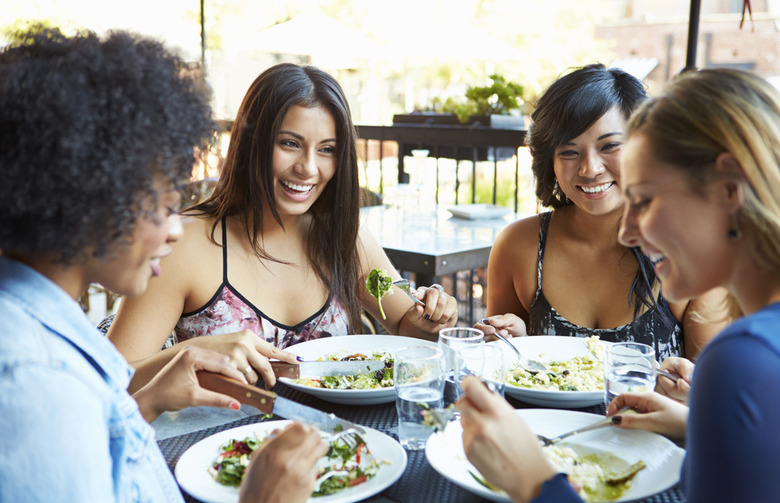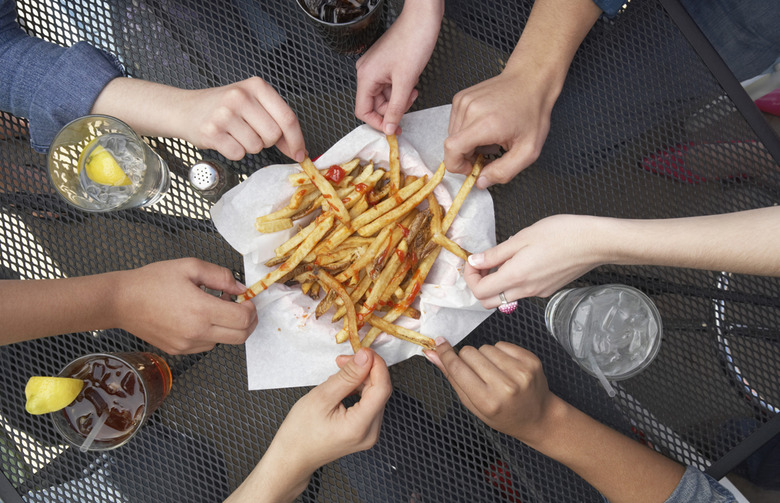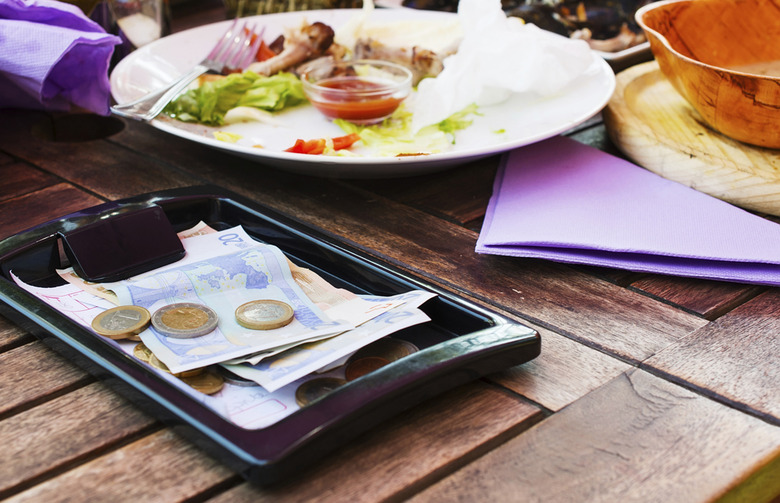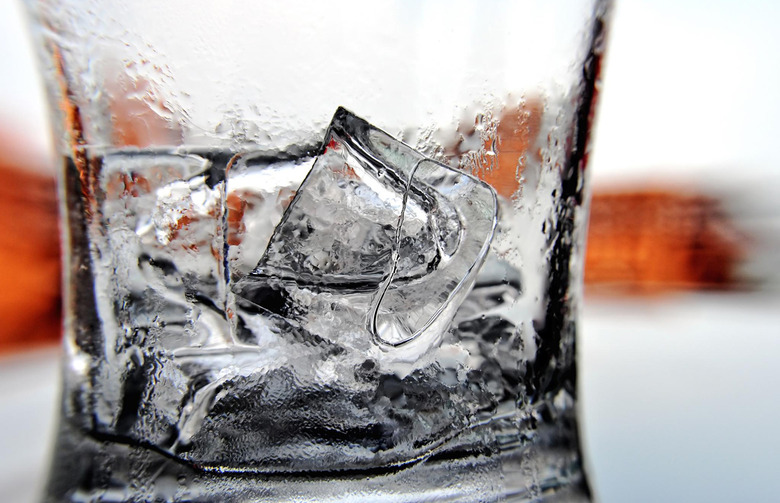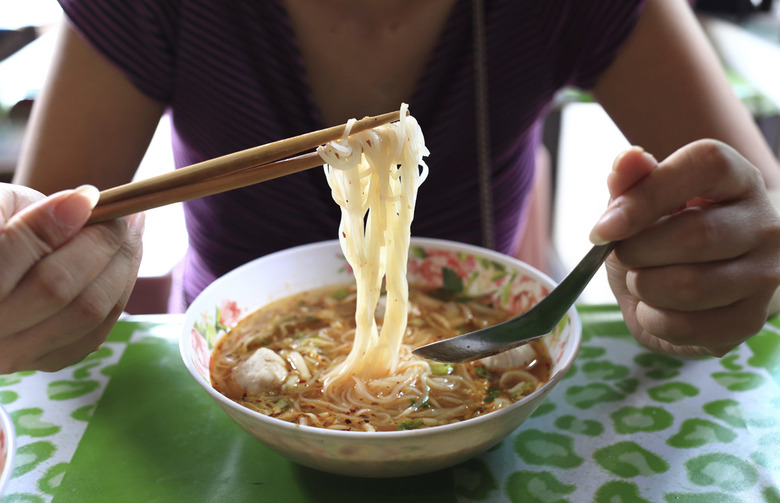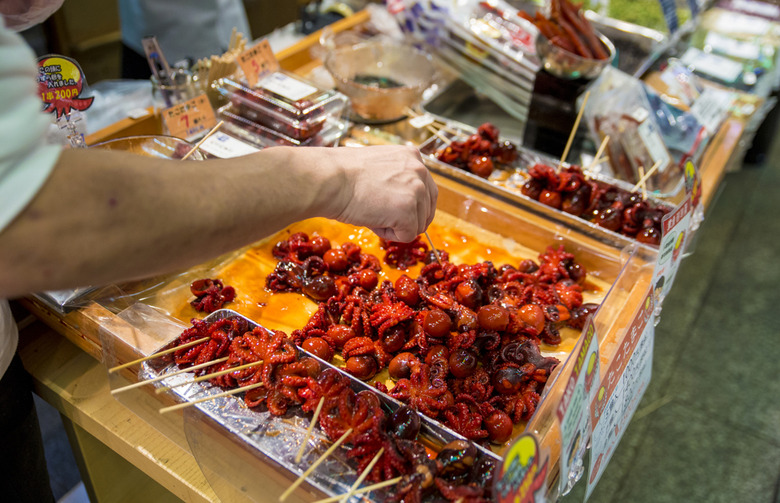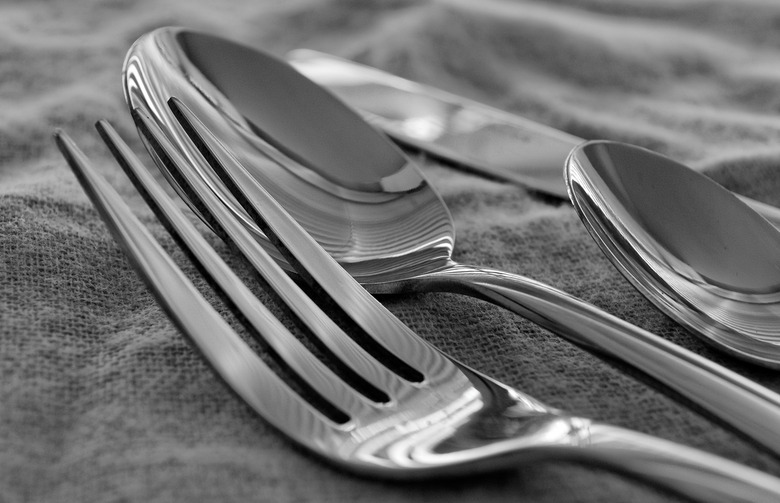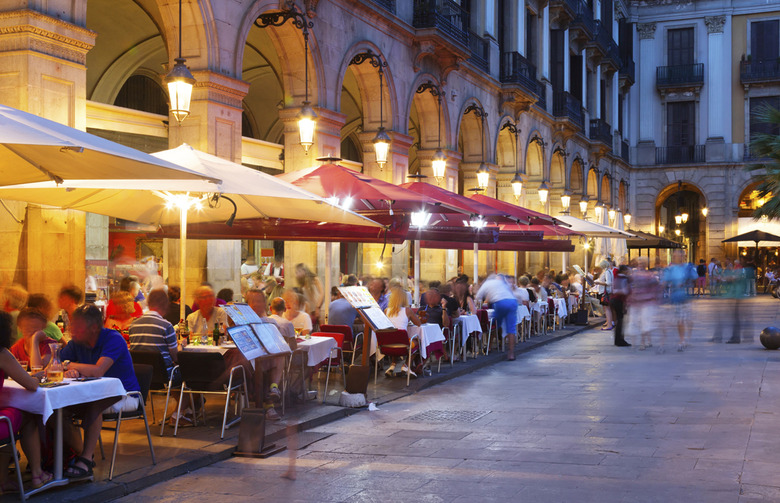Don't Be Rude: 10 Cultural Food Blunders To Avoid When Traveling The World
There are a whole lot of American table manners that are totally rude abroad. We decided to make that list more general to provide a basic overview of the practices you should be mindful of when traveling. In other words, when you pick up that wine bottle, remember: Refilling glasses is one of those customs that have very particular etiquette rules. Here are 10 food blunders to avoid when traversing the globe.
Being on Time
Don't make the mistake of ringing the doorbell right on the dot. In Mexico, Greece, and even Canada, arriving late is not just fashionable; it is expected. In fact, in Mexico, it's best you arrive at least 30 minutes behind schedule. If not, well, get ready for some uncomfortable small talk.
Being Too Chatty
Meals are for eating, not chitchat. In Finland, Japan, and some African nations, launching into a story about that crazy thing you saw that afternoon during dinner is not appreciated.
Eating with Your Left Hand
In countries whose residents often eat with their hands, such as India and Morocco, you'll notice almost nobody uses their left hands. Why? Well, let's just say kids in those cultures are taught to use their left hands during potty training, and their right hands during table-etiquette training.
Faulty Tipping
Try to give a bartender at a British pub a pound and you'll only be met with a blank stare. Leave a tip at a restaurant in Japan and your server might be scandalized, because accepting a tip is akin to begging. Take a look at our guide on how to tip in a few major travel hubs.
Mindlessly Refilling Glasses
In Egypt, you are not supposed to refill your own glass; your neighbor has to do that for you, and vice versa. In France, you will invite some shade if you refill your glass without offering to refill everybody else's. In certain Latin American nations, you are not to hold a wine bottle in your left hand when refilling others' glasses, and in Korea, women cannot pour drinks for other women. In other words, think before you pour, everywhere you go.
Mindlessly Using Your Chopsticks
First and foremost, don't assume that all Asian countries use chopsticks; they certainly don't use them in the Philippines and they are only used for noodles in Thailand. As a general rule, avoid sticking chopsticks upright in a bowl of rice; in China and Japan, the implications are grisly. In Japan, nigiri is rarely eaten with chopsticks; use your hand instead.
Ordering in English
Never assume or expect that a server or someone behind the counter knows English, even in tourist-heavy destinations. Even if you feel idiotic trying to pronounce the word, give the locals a chance to correct you (or just ignore your attempts and respond to you in English anyway).
Turning Your Nose Up at Street Food
There's no need to be a snob when it comes to street food because you think it's dirty. In fact, at times, it's even safer than restaurant food, so long as it is served hot.
Using or Not Using Cutlery
In Chile, it is a sin to eat anything at all without a fork and knife — even fries. On the other hand, if you try to eat fried chicken in Alabama with cutlery, expect to be the laughingstock of the table. In South India, meals are traditionally served on a banana leaf; unless you want the leaf to tear as you eat your meal, you'd best brush up on how to eat with your (right) hand.
Waiting or Not Waiting for Others to Eat
As a general policy, we Americans wait for everybody else to be served before we start eating. However, when pasta is served, you are supposed to eat it right away, even if others at the table have not received their dishes yet. For some reason, this applies only to pasta. Similarly, in Vietnam, you should eat food as soon as you're served, as it is rude to let it go cold.

